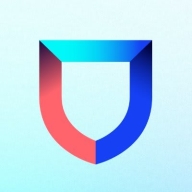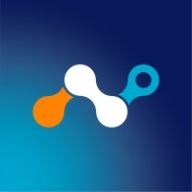


Lacework FortiCNAPP and Netskope Public Cloud Security are competing in cloud security management. Netskope Public Cloud Security has the upper hand with its comprehensive features that justify its cost.
Features: Lacework FortiCNAPP offers robust automation, efficient threat detection processes, and strong customer support. Netskope Public Cloud Security provides advanced data protection, extensive cloud visibility, and a wide range of security functionalities.
Ease of Deployment and Customer Service: Lacework FortiCNAPP is known for smooth integration and an efficient support team, suitable for quick deployment. Netskope Public Cloud Security, although slightly more complex to implement, offers substantial post-deployment assistance, highlighting strong support for its users.
Pricing and ROI: Lacework FortiCNAPP's competitive pricing reduces upfront costs, offering a positive ROI for cost-conscious organizations. Netskope Public Cloud Security has a higher initial investment but delivers significant long-term value with its extensive features.
| Product | Market Share (%) |
|---|---|
| SentinelOne Singularity Cloud Security | 3.6% |
| Lacework FortiCNAPP | 2.4% |
| Netskope Public Cloud Security | 0.4% |
| Other | 93.6% |


| Company Size | Count |
|---|---|
| Small Business | 46 |
| Midsize Enterprise | 20 |
| Large Enterprise | 53 |
| Company Size | Count |
|---|---|
| Small Business | 4 |
| Midsize Enterprise | 4 |
| Large Enterprise | 4 |
SentinelOne Singularity Cloud Security offers a streamlined approach to cloud security with intuitive operation and strong integration capabilities for heightened threat detection and remediation efficiency.
Singularity Cloud Security stands out for its real-time detection and response, effectively minimizing detection and remediation timelines. Its automated remediation integrates smoothly with third-party tools enhancing operational efficiency. The comprehensive console ensures visibility and support for forensic investigations. Seamless platform integration and robust support for innovation are notable advantages. Areas for development include improved search functionality, affordability, better firewall capabilities for remote users, stable agents, comprehensive reporting, and efficient third-party integrations. Clarity in the interface, responsive support, and real-time alerting need enhancement, with a call for more automation and customization. Better scalability and cost-effective integration without compromising capabilities are desired.
What are SentinelOne Singularity Cloud Security's standout features?SentinelOne Singularity Cloud Security is deployed in industries needing robust cloud security posture management, endpoint protection, and threat hunting. Utilized frequently across AWS and Azure, it assists in monitoring, threat detection, and maintaining compliance in diverse environments while providing real-time alerts and recommendations for proactive threat management.
Lacework FortiCNAPP provides robust cloud security, combining vulnerability management and multi-cloud insight with user-friendly controls, machine learning detection, and compliance support.
Lacework FortiCNAPP specializes in cloud security by merging machine learning anomaly detection with agent-based vulnerability management to offer detailed alerts and compliance reports. Its comprehensive approach allows continuous monitoring across AWS and Kubernetes, providing insights from an attacker's perspective. The platform offers automation and seamless Slack integration, facilitating collaborative and efficient cloud security management. Users value its ability to handle multi-cloud environments and scan IAC scripts, configurations, and compute nodes across AWS and GCP.
What are the key features?Organizations across sectors leverage Lacework FortiCNAPP for cloud security, focusing on compliance, security posture, and vulnerability management. It is widely used for monitoring AWS and Kubernetes environments, scanning IAC scripts, configurations, and securing compute nodes. It supports multi-cloud security posture management and log ingestion, enabling companies to maintain strong cloud infrastructures without dedicated security layers.
Gain the visibility, control and advanced data protection you need across your multi-cloud environments to secure sensitive content within cloud services and maintain best practices and standards compliance. Scan storage services to identify and protect sensitive data as well as detect malware.
We monitor all Cloud Workload Protection Platforms (CWPP) reviews to prevent fraudulent reviews and keep review quality high. We do not post reviews by company employees or direct competitors. We validate each review for authenticity via cross-reference with LinkedIn, and personal follow-up with the reviewer when necessary.